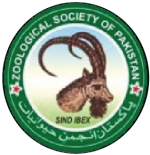Bioaccumulation of Heavy Metals in Freshwater and Marine Fish Species of Pakistan
Bioaccumulation of Heavy Metals in Freshwater and Marine Fish Species of Pakistan
Hina Jabeen*, Usman Irshad, Kainat Azhar, Alisha Fatima, Asma Zaheer Abbasi, Tayyaba Sadia and Jaweria Aqeel
ABSTRACT
Fish have a higher likelihood of surviving under hypo toxic conditions when exposed to heavy metals, but they can accumulate in humans’ brain, liver, kidney, lungs, and muscles after consumption, posing a significant health risk. The fish meat quality is the biggest concern in the food chain of the present time. Both water and fish species are contaminated with heavy metals due to anthropogenic activities i.e., domestic, sewage, industrial and agricultural runoff. Heavy metals concentration in the seven fish species was analyzed from different riverine and marine sites of Pakistan. Freshwater fish were collected from Rawal Dam (Islamabad), Mini Dam at Fateh Jang (Attock) and Sulemanki Headworks at River Satluj, Head Sulemanki at River Satluj, River Jhelum, River Chenab and marine fish species were collected from Karachi coastal region. The concentrations of cadmium, chromium, nickel, lead and iron were analyzed in the fish muscles by Atomic Absorption Spectrophotometer. Among metals, the highest concentrations of Pb (3.391 ± 0.002 µg/g) followed by Cr (0.311 ± 0.001 µg/g) were estimated in the freshwater fish species L. rohita collected from Rawal Dam and W. attu from River Chenab, respectively. The maximum concentrations of Cr (4.589 ± 1.008 µg/g) and Fe (41.176 ± 8.123 µg/g) was observed in marine fish species S. cavalla and Pampus sp., while Cd showed the intermediate concentration throughout in all fish species. Results showed that the concentration of Pb and Fe exceeded the limit of WHO and FAO which is the potential threat specifically the marine species due to their high consumption rate.
To share on other social networks, click on any share button. What are these?








